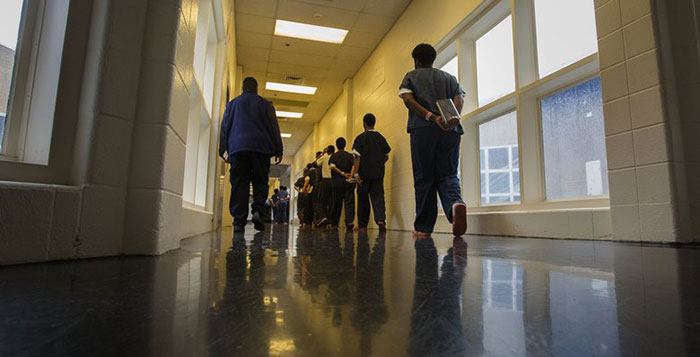Just about everyone we encounter at Rapid Release Bail Bonds is aware of the right to bail. But that’s not because they all paid close attention in social studies class. Instead, it’s because anyone who has ever watched Law and Order (or a hundred other police procedurals on TV over the past half century) has seen and heard bail discussed a thousand times. It’s part of the American vernacular. But while most everyone is aware of bail as a concept they’re usually a bit short on understanding the specifics. For instance; are juveniles eligible for bail in Colorado? If you asked 100 people on the streets of Denver that question you’d likely get 99 glazed looks.

So Can Juveniles Call a Bondsman?
Everyone knows that when an adult is arrested for violating the law they have a right to be released on bail. The constitution of the United States also specifically prohibits that bail from being excessive (though it doesn’t define exactly what “excessive” is). There are however, some cases where a person will be held without bail. Usually if the crime they are accused of is particularly gruesome or they are considered a high flight risk. The situation for juveniles is a different matter however.
As is the case in most states juveniles in Colorado are theoretically eligible for bail. Although the circumstances under which bail is granted to a juvenile are not as cut and dry as they are with adults. There are myriad circumstances that weigh on the consideration of bail for juvenile offenders, including:
- Whether the juvenile is at risk of imminent harm from someone else.
- Whether the juvenile is thought to pose a risk to the community at large or specific members of the community in particular.
- Whether or not the parents are willing to post bail (in some cases parents will state their belief that it’s better if their child is held for a time to scare them straight, or some such thing).
- Whether the parents or guardian are able to post bail.
- Whether a bail bonding agent is willing to enter into a contract for the juvenile (most bonding agents will refuse to deal directly with juveniles since they are not of an age to enter into legally binding contracts).
No Absolute Right to Bail
The bottom line is that, when it comes to juveniles, there is no absolute right to bail. Whether or not the juvenile is to be offered bail is up to the discretion of the court. There are, in fact, many instances where an adult may be offered bail but a juvenile may not be for the exact same offense. For example, adults accused of committing crimes involving guns will often be offered bail (as long as it wasn’t a mass shooting or some other egregious offense). Whereas juveniles arrested for crimes involving guns are often held without bail. Even if the gun was never fired.
Who Exactly is a “Juvenile”?
The term “juveniles” refers to people between the ages of 10 and 18. From a legal perspective they occupy a kind legal limbo where they are no longer considered a child but are not considered an adult either.
If a child under 10 is accused of committing a crime the case is typically referred to the Department of Human Services in Denver. And if someone over the age of 18 is accused of a crime they are processed by the well-established adult criminal justice system.
Why Juveniles are Processed Differently
Because juveniles occupy the aforementioned grey area between childhood and adulthood - and because the focus of juvenile justice is on the best interests of the child rather than punishment - attempting to process them in a uniform manner becomes difficult. Some 13 year olds may be very intelligent and emotionally developed while others are still quite childlike. Likewise some juveniles can be physically intimidating while others are anything but.
As such the question of bail is left to the discretion of the court based on the particulars of the case and the suspect. In some cases - such as shoplifting - the judge may decide to simply release the juvenile to the custody of her parents. While in other cases - such as murder or rape - bail (or any other type of release) is often out of the question.
The Path to Bail for Juveniles
When a juvenile is arrested on suspicion of a crime in Adams County, Broomfield County, Weld County are transported to the closest Juvenile Services Center (JSC). There they are processed and their parents notified.
The staff at the JSC conducts a review of the matter, including the crime and the juvenile’s history, and determines whether they should be released via the pre-trail release mechanism, or if they should be taken to juvenile detention. (Adults are often offered bail following their initial processing but bail does not enter the equation for juveniles at this early stage, if it ever does.)
Juveniles who are detained following the initial assessment must then wait for a detention hearing. As with adults this type of hearing must occur with 48 hours of arrest. It is at this hearing that the judge will make a decision regarding bail. As we mentioned earlier a bondsman will almost never enter into a bail contract with a minor. But may agree to work with the juvenile’s parent or guardian.
If you have questions about the juvenile bail process contact the pros at Rapid Release Bail Bonds at (720) 988-8304. We’re here to help.